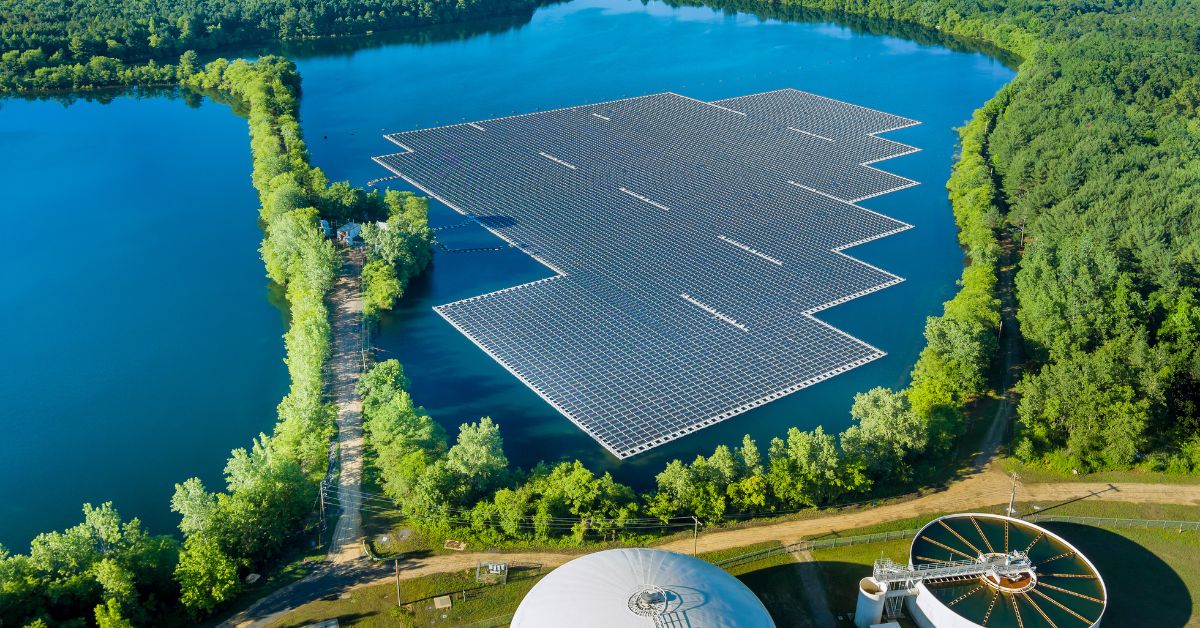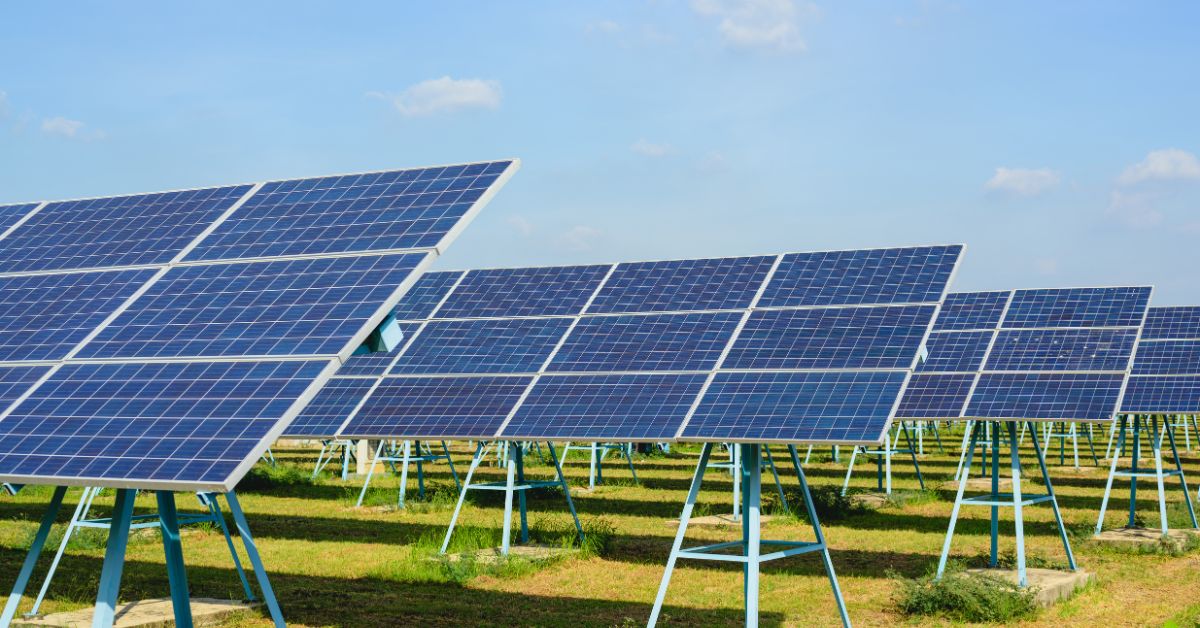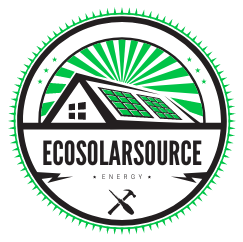Benefits of Solar Panels
The Benefits of Solar Panels make them a smart choice for sustainable energy. First, they reduce electricity bills by harnessing the power of the sun, providing free energy once installed. Solar panels also contribute to a cleaner environment by reducing carbon emissions and reliance on fossil fuels. They require minimal maintenance, with most systems lasting 25 years or more. In addition, solar energy systems increase property value and can even generate passive income through net metering. By opting for solar, individuals and businesses can achieve greater energy independence and contribute to a more sustainable future.
The Benefits of Solar Panels: Why Solar Energy is the Future of Sustainable Power
Solar energy has evolved from a niche technology into one of the most promising and accessible sources of renewable energy available today. With the growing awareness of environmental sustainability and the need to reduce our reliance on fossil fuels, solar power has emerged as a key player in the global energy transition. Solar panels, the primary technology used to harness the energy of the sun, offer numerous advantages for individuals, businesses, and the planet as a whole. This article explores the various benefits of solar panels, covering environmental, financial, technological, and societal perspectives, and why they are an essential part of the future energy landscape.
The Benefits of Solar Panels
1. Environmental Benefits of Solar Panels
The environmental advantages of solar energy are among the most compelling reasons for its adoption. As the world grapples with the effects of climate change, reducing carbon emissions and minimizing environmental harm have become paramount.

a. Reduction of Greenhouse Gas Emissions
The burning of fossil fuels like coal, oil, and natural gas for energy is one of the primary contributors to global greenhouse gas emissions. These emissions are responsible for the warming of the planet and the disruption of ecosystems, leading to extreme weather events, rising sea levels, and loss of biodiversity.
Once installed, solar energy systems operate with virtually zero emissions, making them a clean and sustainable energy source. According to the U.S. Environmental Protection Agency (EPA), the average home solar panel system can reduce carbon emissions by approximately 3,000 pounds of CO2 annually. Over 25 years, this adds up to around 75,000 pounds of emissions avoided.
b. Conservation of Natural Resources
Fossil fuels are finite resources, and their extraction has significant environmental consequences, including habitat destruction, water pollution, and air pollution. Solar power, on the other hand, relies on the virtually limitless energy of the sun. By shifting to solar energy, we reduce the demand for fossil fuel extraction and help preserve natural ecosystems.
Furthermore, solar panels can be installed on rooftops and other existing structures, minimizing land use and preventing further disruption of natural habitats. This contrasts with other forms of energy production, such as large-scale coal or natural gas plants, which often require significant land, water, and infrastructure.
c. Reduction of Air Pollution
In addition to carbon dioxide, fossil fuel combustion releases harmful pollutants such as sulfur dioxide (SO2), nitrogen oxides (NOx), and particulate matter (PM). These pollutants contribute to smog, acid rain, respiratory illnesses, and premature deaths. By replacing fossil fuel-based electricity generation with solar energy, we can improve air quality and protect public health.
Solar power generates electricity without emitting these harmful pollutants, leading to cleaner air and a healthier environment. Studies have shown that areas with higher adoption of renewable energy, including solar, experience reduced air pollution and improved overall public health outcomes.
2. Financial Benefits of Solar Panels
The financial benefits of solar panels are another major driver of their popularity. Solar energy is not only environmentally friendly but also economically advantageous for homeowners, businesses, and even governments.
a. Reduction in Electricity Bills
Solar panels allow homeowners and businesses to generate their electricity, reducing the amount of power they need to purchase from the grid. In many cases, solar panel systems can generate enough electricity to meet most or all of a building’s energy needs.
When solar panels produce more electricity than is used, many utilities offer net metering programs, where excess energy is fed back into the grid and the owner receives credits on their electricity bill. This can further reduce or even eliminate electricity costs, making solar a financially attractive option in the long term.
b. Protection Against Rising Energy Costs
Energy prices have historically risen over time due to inflation, changes in fuel prices, and increasing demand. Solar panels provide a hedge against these rising costs by allowing homeowners and businesses to produce their energy at a fixed cost. Once the system is installed, the fuel (sunlight) is free, and the only ongoing expenses are maintenance and occasional replacements of system components like inverters.
This stability in energy costs is particularly beneficial for businesses and industries with high energy consumption. By investing in solar energy, they can protect themselves from price volatility and improve their long-term financial planning.
c. Increased Property Value
Installing solar panels can also increase the value of a property. Several studies have shown that homes with solar energy systems sell for more than comparable homes without them. This is because buyers are often willing to pay a premium for a property that comes with lower energy costs and a reduced environmental footprint.
In addition to increased property value, solar panels can also make a home more attractive to potential buyers. With growing awareness of climate change and energy efficiency, many buyers are actively seeking out homes with green features, including solar energy systems.
d. Government Incentives and Tax Credits
Many governments offer financial incentives to encourage the adoption of solar energy. These incentives can significantly reduce the upfront cost of installing solar panels, making the technology more accessible to a wider range of people.
In the United States, for example, the federal government offers a Solar Investment Tax Credit (ITC) that allows homeowners and businesses to deduct a percentage of the cost of installing a solar energy system from their federal taxes. State and local governments may also offer additional rebates, grants, or tax credits, further lowering the cost of going solar.
Additionally, many utilities offer performance-based incentives, where homeowners and businesses are paid for the amount of electricity their solar panels generate. These incentives vary by location, but they can provide a significant financial boost for solar adopters.
3. Technological Advancements and Efficiency of Solar Panels
The technology behind solar panels has advanced significantly in recent years, making them more efficient, durable, and affordable than ever before.
a. Improved Solar Panel Efficiency
Early solar panels were relatively inefficient, converting only a small percentage of sunlight into electricity. However, advancements in photovoltaic (PV) technology have led to significant improvements in efficiency. Modern solar panels can convert between 15% and 22% of the sunlight they receive into usable electricity, with some high-efficiency models achieving even higher rates.
Increased efficiency means that solar panels can generate more electricity in the same amount of space, making them a more viable option for a wider range of homes and businesses, even in areas with limited roof space.
b. Energy Storage and Battery Technology
One of the traditional limitations of solar power has been its intermittent nature. Solar panels generate electricity only when the sun is shining, which means they cannot produce energy at night or on cloudy days. However, advances in energy storage technology, particularly lithium-ion batteries, have made it possible to store excess energy generated by solar panels for use when the sun is not shining.
Home energy storage systems, such as Tesla’s Powerwall, allow homeowners to store solar energy and use it during the evening or in the event of a power outage. This increases the reliability of solar energy and reduces dependence on the grid, making solar a more practical and appealing option.
c. Durability and Longevity of Solar Panels
Solar panels are incredibly durable and require very little maintenance. Most solar panels come with warranties that last 25 years or more, and many continue to operate efficiently well beyond that timeframe. This longevity makes solar panels a reliable long-term investment.
Additionally, solar panels have no moving parts, which reduces the likelihood of mechanical failure. With proper care and occasional cleaning, solar panels can continue to generate electricity for decades.
d. Innovations in Solar Panel Design
In recent years, there has been a growing focus on improving the aesthetics and versatility of solar panels. Traditional solar panels are often large and bulky, which can be a barrier for homeowners concerned about the appearance of their homes.
Innovations in solar panel design include solar shingles, which blend seamlessly into the roof, and transparent solar panels, which can be used in windows or other glass surfaces. These advancements make solar panels more visually appealing and open up new possibilities for integrating solar energy into building designs.
4. Energy Independence and Security
Solar energy provides a path toward greater energy independence and security. By generating electricity locally, individuals, businesses, and even entire communities can reduce their reliance on centralized power grids and foreign energy sources.

a. Energy Independence for Homeowners and Businesses
For homeowners and businesses, installing solar panels means they can produce their electricity rather than relying on energy from the grid. This can be particularly beneficial in areas where electricity is expensive or where the grid is unreliable.
By generating their power, solar adopters are less vulnerable to power outages, price increases, and other disruptions in the energy market. This is especially important in regions prone to natural disasters or extreme weather events, where access to electricity can be critical.
b. National Energy Security
On a larger scale, solar energy can enhance national energy security by reducing dependence on imported fossil fuels. Many countries, particularly those that lack significant domestic fossil fuel resources, rely on imports to meet their energy needs. This can make them vulnerable to geopolitical conflicts, supply chain disruptions, and price fluctuations.
By investing in solar energy, countries can diversify their energy mix and reduce their reliance on foreign energy sources. This can improve energy security and create a more stable and resilient energy system.
5. Job Creation and Economic Growth
The solar industry has become a major driver of job creation and economic growth. As the demand for solar energy continues to rise, so does the need for skilled workers to install, maintain, and manufacture solar panels and related technologies.
a. Growth of the Solar Industry
The solar industry has experienced rapid growth in recent years, both in terms of capacity and employment. According to the International Renewable Energy Agency (IRENA), the global solar workforce reached over 4 million jobs in 2020, making it one of the fastest-growing sectors within the renewable energy industry.
This growth has been driven by increased investment in solar energy, government incentives, and technological advancements that have made solar power more affordable and accessible.
b. Job Creation in Local Communities
One of the unique benefits of the solar industry is that many of the jobs it creates are local. Solar panels need to be installed on-site, and this work is typically done by local contractors and electricians. This means that investment in solar energy can directly benefit local economies by creating well-paying jobs in installation, maintenance, and system design.
Additionally, the manufacturing of solar panels and related equipment provides opportunities for economic growth in regions that invest in renewable energy technologies. Countries that position themselves as leaders in solar technology manufacturing can capture a significant share of the global market, driving further economic growth.
c. Boosting Innovation and Research
The solar energy industry has also spurred innovation and research in related fields, including energy storage, grid integration, and energy efficiency. Advances in these areas not only benefit the solar industry but also have broader implications for the energy sector as a whole.
Investments in research and development can lead to breakthroughs that make solar energy even more efficient, affordable, and accessible. This ongoing innovation is essential for meeting the world’s growing energy needs while reducing environmental impacts.
6. Supporting Sustainability and Climate Goals
Solar energy is a key component of global efforts to combat climate change and transition to a more sustainable energy system.
a. Aligning with Global Climate Targets
Countries around the world have committed to reducing their greenhouse gas emissions in line with the goals of the Paris Agreement. Achieving these targets will require a significant shift away from fossil fuels and toward renewable energy sources, including solar power.
Solar panels offer a scalable and flexible solution to reducing emissions from the electricity sector, which is one of the largest sources of greenhouse gases. By increasing the adoption of solar energy, countries can make meaningful progress toward their climate goals and reduce their carbon footprints.
b. Sustainable Development Goals (SDGs)
In addition to addressing climate change, solar energy contributes to the United Nations’ Sustainable Development Goals (SDGs). These goals aim to address a wide range of global challenges, including poverty, inequality, and environmental degradation.
Solar energy supports several of the SDGs, including Goal 7 (Affordable and Clean Energy), Goal 13 (Climate Action), and Goal 11 (Sustainable Cities and Communities). By expanding access to clean, affordable, and reliable energy, solar power can improve the quality of life, promote economic development, and protect the planet for future generations.
Advantages and Disadvantages of Solar Panels
As more homeowners and businesses explore sustainable energy solutions, solar panels have emerged as one of the leading choices. Solar energy promises both environmental benefits and long-term cost savings. However, before making the switch, it’s essential to weigh the pros and cons. In this blog post, we’ll break down the advantages and disadvantages of installing solar panels.

Advantages of Solar Panels
1. Environmental Benefits
One of the biggest advantages of solar panels is their positive impact on the environment. Solar energy is a clean and renewable source of power, reducing the carbon footprint by cutting down on the reliance on fossil fuels like coal, oil, and natural gas. Solar power generates no greenhouse gas emissions or air pollution, making it an eco-friendly choice for reducing climate change.
2. Cost Savings on Energy Bills
Once installed, solar panels significantly reduce or even eliminate your electricity bills. The sun provides free energy, and over time, the upfront cost of installation is offset by the savings in electricity expenses. In many cases, homeowners can sell excess power generated back to the grid through net metering, creating additional savings.
3. Energy Independence
Solar panels offer energy independence by reducing reliance on public power grids. This is especially important in areas prone to power outages or where energy costs are unpredictable. Generating your electricity means you’re less affected by price fluctuations or supply disruptions.
4. Low Maintenance Costs
Solar panels require minimal maintenance. Typically, an annual cleaning and occasional inspection are enough to ensure they’re working efficiently. Many systems come with warranties lasting 20-25 years, offering peace of mind and long-term protection.
5. Increased Property Value
Installing solar panels can boost the value of your property. Buyers are increasingly interested in homes with energy-efficient features, and solar panels are seen as an attractive, cost-saving investment. In certain markets, solar-powered homes sell faster and at higher prices.
Disadvantages of Solar Panels
1. High Initial Costs
One of the primary drawbacks of solar panels is the high upfront cost of purchasing and installing the system. While prices have dropped significantly over the years, the initial investment can still be prohibitive for some homeowners, even with available incentives and rebates.
2. Weather Dependent
Solar panels rely on sunlight to generate electricity, meaning their efficiency can vary depending on the weather. Cloudy days, rain, and seasonal changes reduce the amount of energy produced. In regions with long winters or limited sunlight, solar power might not be sufficient as a primary energy source without battery storage or backup systems.
3. Space Requirements
Solar panels require sufficient roof space or land to generate enough power for a household. Not all homes have the ideal roof size, angle, or orientation for maximum solar efficiency. Additionally, aesthetic concerns about the appearance of solar panels on homes can deter some homeowners from installing them.
4. Energy Storage Costs
If you want to use solar energy during the night or on cloudy days, you’ll need a battery storage system, which adds to the cost of installation. Batteries are still relatively expensive, and their lifespan isn’t as long as the solar panels themselves, meaning you’ll likely need to replace them before the panels’ lifespan ends.
5. Potential for Decreased Efficiency Over Time
Though solar panels are durable, their efficiency gradually decreases over time. Most panels come with a 25-year warranty, but after about two decades, their ability to generate electricity diminishes. The decline is slow, but it’s something to consider when calculating long-term energy savings.
Conclusion: The Bright Future of Solar Energy
Solar panels offer a wide array of benefits that make them an essential part of the future energy landscape. From environmental protection and financial savings to technological innovation and energy security, the advantages of solar energy are clear. As the world continues to transition toward a more sustainable and resilient energy system, solar power will play a critical role in reducing our reliance on fossil fuels, cutting carbon emissions, and creating a cleaner, healthier planet for generations to come.
Whether you’re a homeowner looking to reduce your electricity bills, a business owner seeking to increase energy independence, or a government official working to meet climate targets, solar energy offers a powerful and practical solution. With continued advancements in technology, growing financial incentives, and increasing public awareness, the future of solar energy has never been brighter.
Click Here to learn more About the Benefits of Solar Panels
Click Here to Know More About Solar Panels For Homes in India

